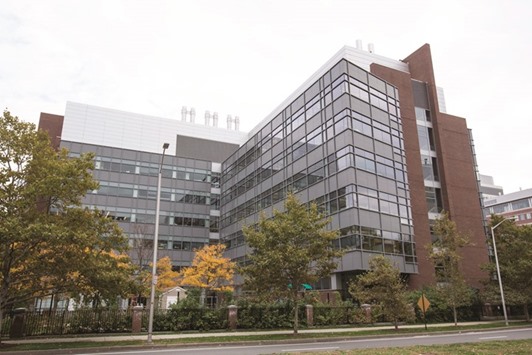Biogen said it’s in early discussions with companies to get access to a new gene-editing tool, known as Crispr, as the drug maker announced two deals that will bring increased expertise in gene therapy.
Crispr technology is “clearly a must-have,” Olivier Danos, Biogen’s head of cell and gene therapy, said by phone on Friday. Biogen is talking about potential deals with some companies that have Crispr tools, he said, “but we have to find the right fit.” He didn’t specify the nature or scope of the potential deals or the companies in the discussions.
The appeal of Crispr is its low cost and ease of use in slicing out flawed portions of DNA or even replacing them with useful strands. Drug makers including Novartis, Regeneron Pharmaceuticals, Johnson & Johnson and Bayer already have struck deals with Crispr companies. Investment also has flowed in from the public markets, with Crispr company Editas Medicine soaring 88% since its market debut in February, and gene-editing firm Intellia Therapeutics surging 30% since its May 5 initial public offering.
Although battered by a slowing market for its main money-makers in multiple sclerosis drugs, Biogen has said it will focus increasingly on therapies for central nervous system diseases. Along with gene editing, those efforts will involve gene therapy, which the company moved into aggressively with two deals announced on Monday. In traditional gene therapy, a virus delivers a working gene into cells that have non-functioning DNA. Crispr tools can also be delivered to cells via a virus.
One of Biogen’s deals entails working with the labs of University of Pennsylvania scientists James Wilson and Jean Bennett on making better tools to deliver gene therapies. Wilson is a pioneer in the field who’s been rehabilitating his name since a teenager suffering from a rare genetic condition died in one of his medical experiments in 1999. The other deal is with a company Wilson founded, Regenexbio, for use of its gene- therapy delivery system in two rare eye diseases.
Biogen will pay $83mn in fees and research funding to the University of Pennsylvania, and future payments could bring the total to $2bn, the company said in a statement. Regenexbio chief executive officer Ken Mills didn’t give exact figures for the agreement, saying Biogen will pay “low seven figures” upfront along with license fees and some royalties on any net sales from approved products.
These agreements will help Biogen cross one of the biggest hurdles in gene editing: delivering Crispr tools safely and consistently into cells, Danos said.
“The success would be to combine Crispr technologies with gene-transfer technologies, and it hasn’t happened yet,” although many may believe that combination has been achieved, Danos said. “It’s not, and it will require the type of association with Penn to get it done.”
One opening for Biogen could be an agreement with a Crispr firm to work in a broad disease category such as the central nervous system, Danos said. That could include work in eye diseases. Biogen is interested in both rare and relatively common eye afflictions, such as macular degeneration and glaucoma, he said. In July, Biogen inked a deal with Applied Genetic Technologies Corp for two of its gene-therapy candidates for eye disorders.

The Biogen headquarters stands in Cambridge, Massachusetts. Crispr technology is ‘clearly a must-have’, says Olivier Danos, Biogen’s head of cell and gene therapy. Biogen is talking about potential deals with some companies that have Crispr tools, he said.
